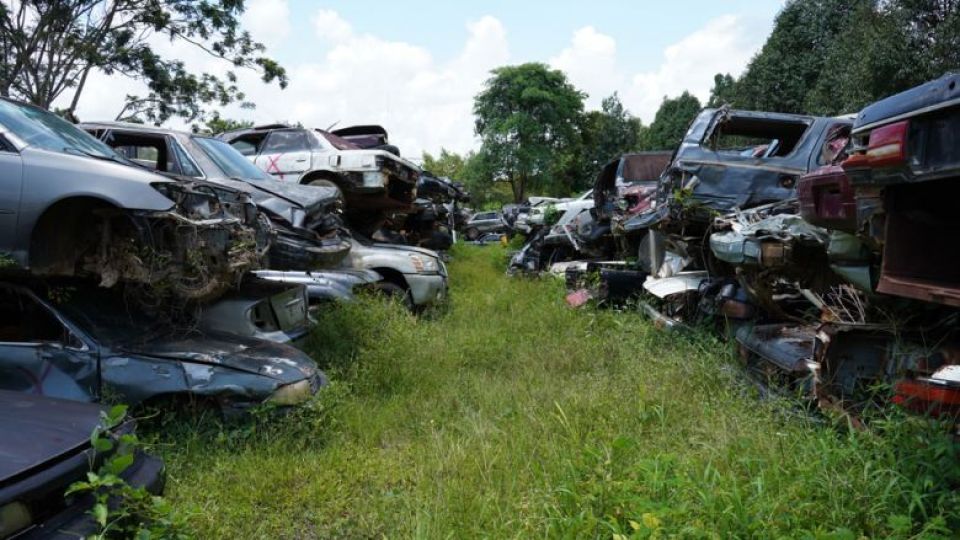August 3, 2022
PHNOM PENH – Over the course of the past 12 months in Mondulkiri province at least 85 suspects have been sent to court for offences stemming from 195 cases of natural resource crimes, of which 160 cases were sent to court and 30 of those cases have thus far incurred fines.
In addition to those prosecutions, 15,600 snares were removed and the province sold carbon offset credits worth $200,000 in 2021 and $600,000 already in 2022.
These statistics were all provided by Mondulkiri provincial Department of Environment director Keo Sopheak at a press conference on the zero-snaring campaign’s progress in the province on July 29 as it has been running for six months of 2021 and six months of 2022.
“We have seized 628 chainsaws, 59 vehicles, six sawmills, 12 tractors, 29 trucks, 289 motorcycles, two boats, 5,802 illegally-planted boundary markers, 24 homemade guns – including one automatic weapon – some ammunition and we seized various wild animals and illegally logged timber,” he added.
Ministry of Environment secretary of state Neth Pheaktra said that this report was a good indicator of the scale and scope of forestry, natural resources and wildlife crimes happening in the Kingdom because Mondulkiri has 1.3 million ha of protected conservation land, while Cambodia has in total 21 of 24 provinces with natural protected areas that span a total of 7.3 million ha of land or about 41 per cent of the Kingdom’s total territory.
“Mondulkiri province has effectively cracked down on most of the forest crimes happening there and that’s a good sign because the province has the largest amount of protected land in all of Cambodia,” he added.
He continued that Cambodia has sold carbon credits in the Keo Seima Wildlife Sanctuary to major international firms from 2016 through 2020 for $11.6 million and all Cambodia has to do to earn that money and keep earning it is to conserve its forests and stop their destruction.
The government and its partners have been looking for additional new markets to sell carbon credits on to take advantage of the proceeds available to increase and strengthen the work of protecting and conserving natural resources and to boost the local economies for the people living in those areas.
Chhay Kimheak, head of the REDD+ project – a UN carbon credits framework – for the Keo Seima Wildlife Conservation Society (WCS) said that for 2022, the Keo Seima Wildlife Sanctuary had sold carbon credits to the voluntary market for $600,000 and that was a threefold increase compared to the year 2021.
“For 2022, we sold carbon credits to the voluntary market from the Keo Seima Wildlife Sanctuary for $200,000 in 2021 and then for $600,000 in 2022 – a threefold increase, compared to 2021. We divided the proceeds among 20 villages according to their scores related to how well they participated in efforts to protect natural resources,” she said.
She said that she expected that in 2023 the proceeds that will go to these communities could top one million dollars, so long as the communities strive to join in the protection and keep the forests there intact.


